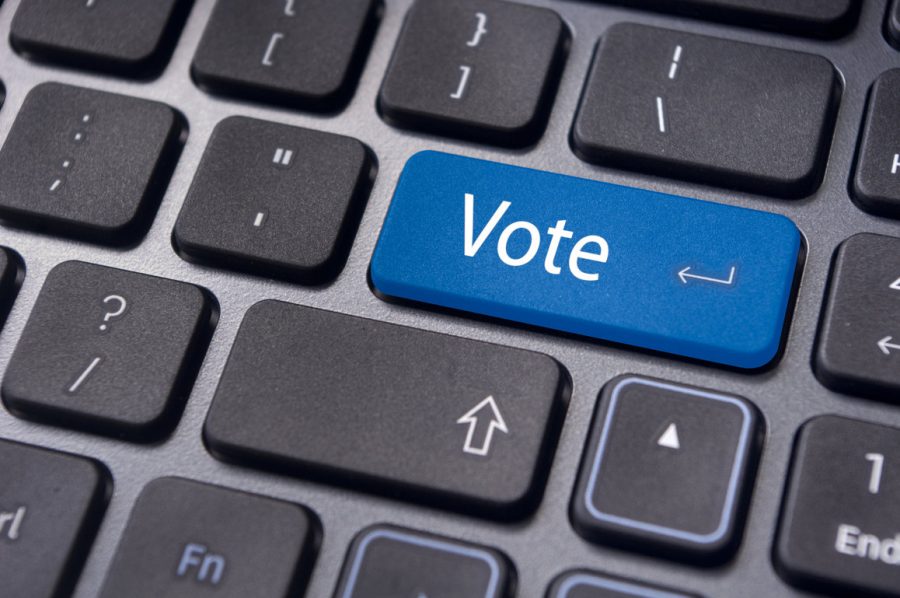Realising the Essence of America
Time for a true Democracy in America
Ah yes, the representative democracy. The beacon of freedom and equal representation all across the world, or at least in the eyes of those who already practice it. For centuries it has been the best option for democratic countries to handle voting, and it is a system that is seen as very important to the American way of life. But could this system be the wrong choice in this day and age? The Electoral College provides a convenient way for candidates to consolidate who they have to bribe to a few hundred people instead of an entire country, but with an election decided purely by popular vote, this possibility would be all but eliminated. In a country where the supposed voice of the people comes out of the mouths of the Electoral College, could there be a better solution so that every American citizen has their individual voice represented in matters of government? It may sound like a miracle pipe dream to some, but it may be possible or even plausible through the previously undreamed of technology that we take for granted: the internet!
Representative democracy was invented by societies that were too big for every voice to be heard individually, and so representatives were elected for different geographical regions, but the internet provides a way for everyone to represent themselves without traveling miles to a central voting forum. The solution may seem all too simple, a trait often shunned in modern politics, but for a system to be accessible to the public, simplicity is a requirement. Assuming that whatever program or website where the voting would take place is completely secure against intruders, the only problem would be accessibility. With smartphones in the pockets of most Americans, and personal computers in the homes of the rest, locational accessibility would be infinitely easier than the current limited time and set location of physical polls.
With that taken care of, the only problem left, as far as accessibility goes, is making sure that voters have access to the internet. According to the Pew Research Center’s survey in early 2016, 13% of Americans don’t have internet. That seems like a major problem, but the numbers are improving. In 2000, it was surveyed that 48% of American adults didn’t have internet access. Not only are the numbers improving naturally, but they could be improved right now given good reason. According to the PRC, 34% of non-internet users don’t use it simply due to “lack of interest,” 32% to being “too difficult to learn,” with 8% being “too old,” and only 19% due to cost. That means that only 2.5% of American citizens can’t afford internet.
But then arises a major problem in the proposed internet polls. According to the United States Election Project, citizens ages 60 and over are the most frequent voters, with over 70% coming to polls in recent years. Matched against the PRC survey, that 41% of non-internet users are 65 or older, that means that about 3.7% of voting seniors wouldn’t be able to vote. According to numbers provided by the Huffington Post, about 42% of the voting population were seniors in 2012. That means that about 1.5% of senior voters would be denied their right to vote. The trend goes that, as age demographic increases, so do percentage of votes from that demographic. Unfortunately, the trend goes the opposite way for internet usage. That means that the largest voting demographic would be alienated by the elimination of physical polls.
That being said, as the current young generation becomes old, we won’t simply forget how to use the internet, and we’ll pass down what has become critical knowledge to us to the following generations. Assuming that the internet doesn’t become outdated by some sort of hive mind or other poly-connective service, internet voting could be more than just possible in a decade or two. It’s a long time to a person, but politically it’s remarkably short, 5 more presidents maximum if you assume a 20 year period.
What do you think about this proposition? Could a symbiosis between physical and online polling be the answer to every U.S. citizen being heard? Putting an end to potential corruption in the Electoral College is certainly a concern that should be addressed, and I invite you, the reader, to learn more about the past ineffectiveness of the Electoral College and other alternative solutions to voting. In a country where the government is supposed to be run by the people, for the people, why do we trust a select few to be the voice of every person? It is the time for change in our political system to one in which the only reason for someone to not have their voice heard is for that person to refuse to speak!

